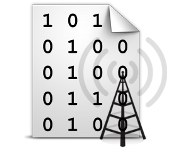|
|
| |
|
 | Search: |
|
|
|
|
|
 |

|
|
3G-EA click is a versatile cellular network communication solution, featuring the compact 3G UMTS/HSPA Quectel UG95 module. This module features a full set of options for the cellular networking and communication, such as the network indication, embedded TCP/UDP stack, HTTP/HTTPS stack, full GSM/GPRS/EDGE implementation, UMTS/HSDPA/HSUPA protocol implementation and more. 3G-EA click features data-rates of 7.2 Mb/s (downlink) and 5.76 Mb/s (uplink) in HSPA mode. Onboard 16bit audio CODEC IC adds high-quality voice communication capability.
|
|
|
|
|
 |

|
|
3G SARA click is a mikroBUS add-on board with the smallest UMTS/HSPA cellular modem available today - the u-blox U201, from the award-winning SARA series.
The board has everything you need to add 3G to your devices and make them respond and react to phone calls and messages - or send/receive data at speeds up to 7.2 Mb/s - from anywhere in the world. The code example provided should help you get started quickly. |
|
|
|
 |

|
|
GSM Click is an add-on board in the mikroBUS form factor and is a perfect solution for adding a GSM/GPRS communication layer to your device. It features the Telit GL865-QUAD GSM/GPRS module which supports GSM/GPRS 850/900/1800/1900 MHz Quad-band frequency. The board contains a TXB0106 6-bit bidirectional voltage-level translator as well as a SIM card socket. GSM Click communicates with the target microcontroller via seven mikroBUS lines (RX, TX, INT, PWM, CS, RST and AN). The board uses a 3.3V power supply, but can communicate at either 3.3V or 5V voltage levels (selection by SMD jumper). An LED diode indicates the presence of power supply. |
|
|
|
 |

|
|
GSM2 Click is a perfect solution for adding a GSM/GPRS communication layer to your device. It features the Quectel M95 GSM/GPRS module which supports GSM850MHz, GSM900MHz, DCS1800MHz or PCS1900MHz quad-band frequencies with 85.6 kbps GPRS data transfer. The board is designed in the mikroBUS form factor and contains quadrupole audio/microphone jack, SMA antenna connector and a SIM card socket. GSM Click communicates with the target microcontroller via seven mikroBUS lines (RX, TX, INT, PWM, CS, RST and AN). The board uses a 5V power supply, but can communicate at either 3.3V or 5V voltage levels (selection by SMD jumper). An LED diode indicates the presence of power supply. |
|
|
|
 |

|
|
GSM3 click carries the SIM800H, which is a quad-band (850/900/1800/1900MHz) GSM/GPRS module that transmits voice, sms and data information. Utilizing the module's full potential, GSM3 click also has an audio input/output connection pad (for a microphone and earphones, which can also be used as an FM antenna). The SIM800H also supports Bluetooth, so a 2.4 GHz active antenna is also included on the board. Two indication LEDs signal the operating and network status of the module. The board uses a 5V power supply, but can communicate at either 3.3V or 5V voltage levels (selection by SMD jumper). An LED diode indicates the presence of power supply. |
|
|
|
 |

|
|
GSM 4 click is a mikroBUS™ add-on board that features the u-blox SARA-G3 series 2.5G GSM/GPRS cellular quad-band module. The SARA-G3 module has a miniature LGA (Land Grid Array) form factor as well as an RF transceiver and a power amplifier. |
|
|
|
 |

|
|
GSM-GPS click is a mikroBUS add-on board with a SIM808 module that combines GSM/GPRS and GPS into a single device. Ideal for remote tracking devices in any shape or form.
The high-performance GSM/GPRS engine works on GSM, EGSM, DSC and PCS frequencies. The GPS has a 1 second TTF (Time To First Fix) from a hot start and 30 seconds from a cold start. Tracking sensitivity is -165 dBm.
The board has two antenna connectors, one for GSM the other for GPS. The bottom side has a SIM card slot and a Micro USB connector for interfacing with a PC.
GSM-GPS click communicates with the target board MCU through mikroBUS UART interface, with additional functionality provided by STAT, PWRKEY, RTS, RS, and CTS. Beside the mikroBUS, the board has additional pins for connecting speakers and a microphone to the GSM engine.
GSM-GPS click uses either a 3.3V or 5V power supply. |
|
|
|
 |

|
|
Update! Our new-and-improved, ground-up-rebuilt, compiler-agnostic GSM Library is available at https://eitech.systems/libgsm-gsm-library/! :-)
Our GSM Library is designed to make interacting with a GSM module reliable and easy. The base library includes functions for detecting missed calls, reading/writing the GSM modules internal RTCC (real-time calendar and clock), extracting the date/time from the GSM network, reading the modules IMEI code, and entering the SIM card pin code.
Extensions are available for adding text messaging (SMS) and/or GPRS functionality to the library.
|
|
|
|
 |

|
|
GSM/GNSS click combines GPS/GLONASS location tracking with GSM module capability for mobile communication. The click features Quectel's MC60 quad-band module. GSM/GNSS click runs on either 3.3V or 5V power supply and communicates with the target MCU over UART interface, and the following mikroBUS™ pins: AN, RST, PWM, INT. |
|
|
|
 |
|
|

